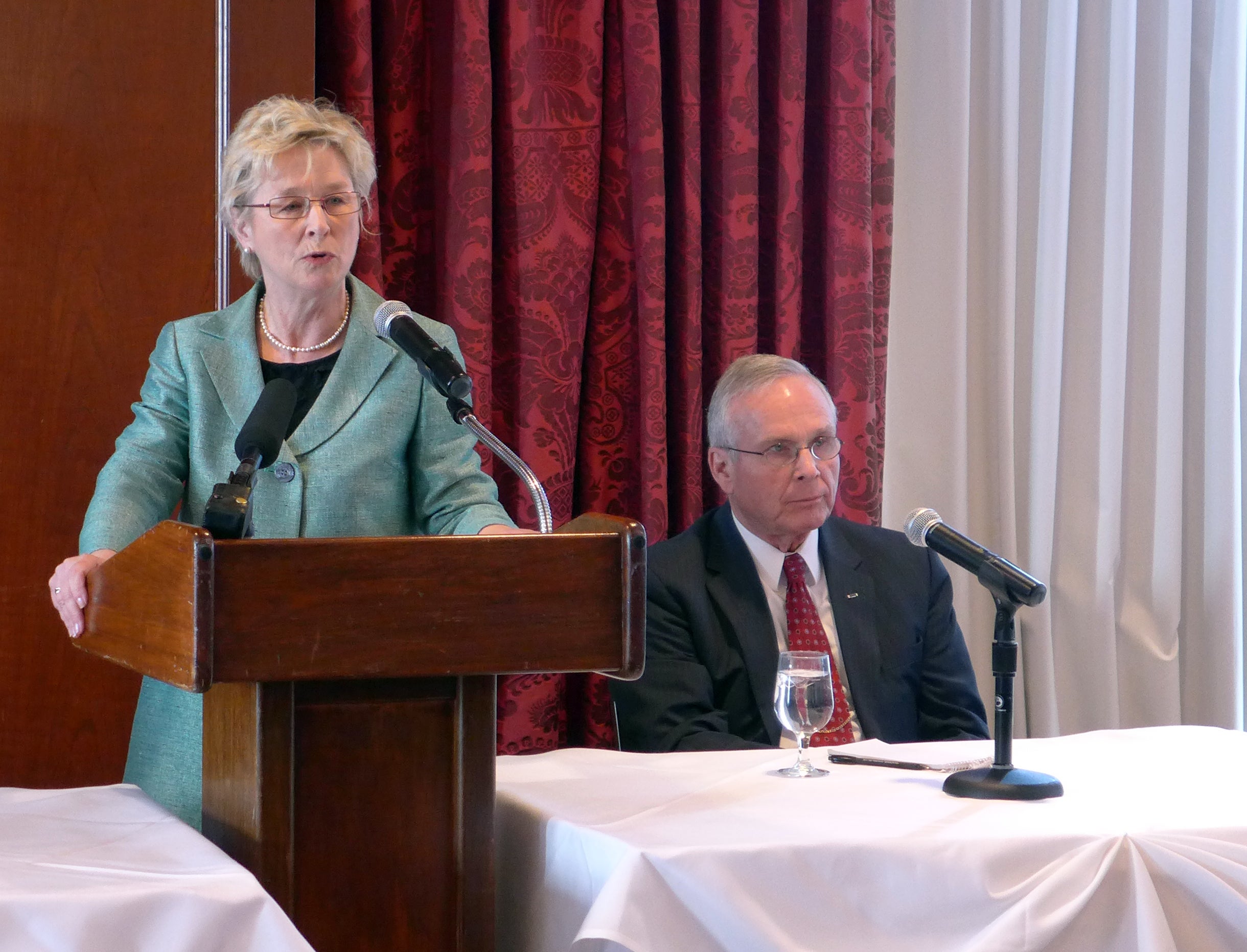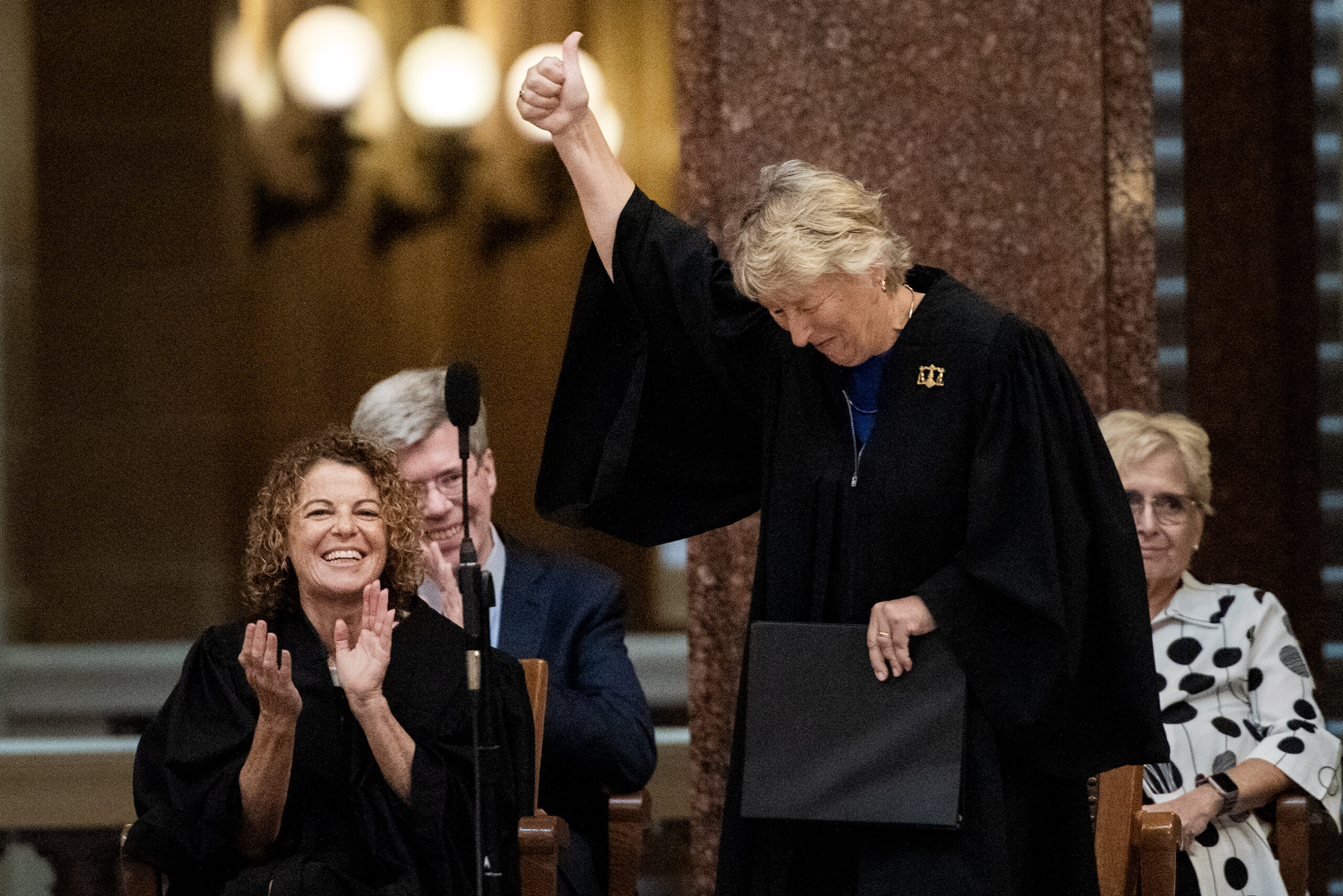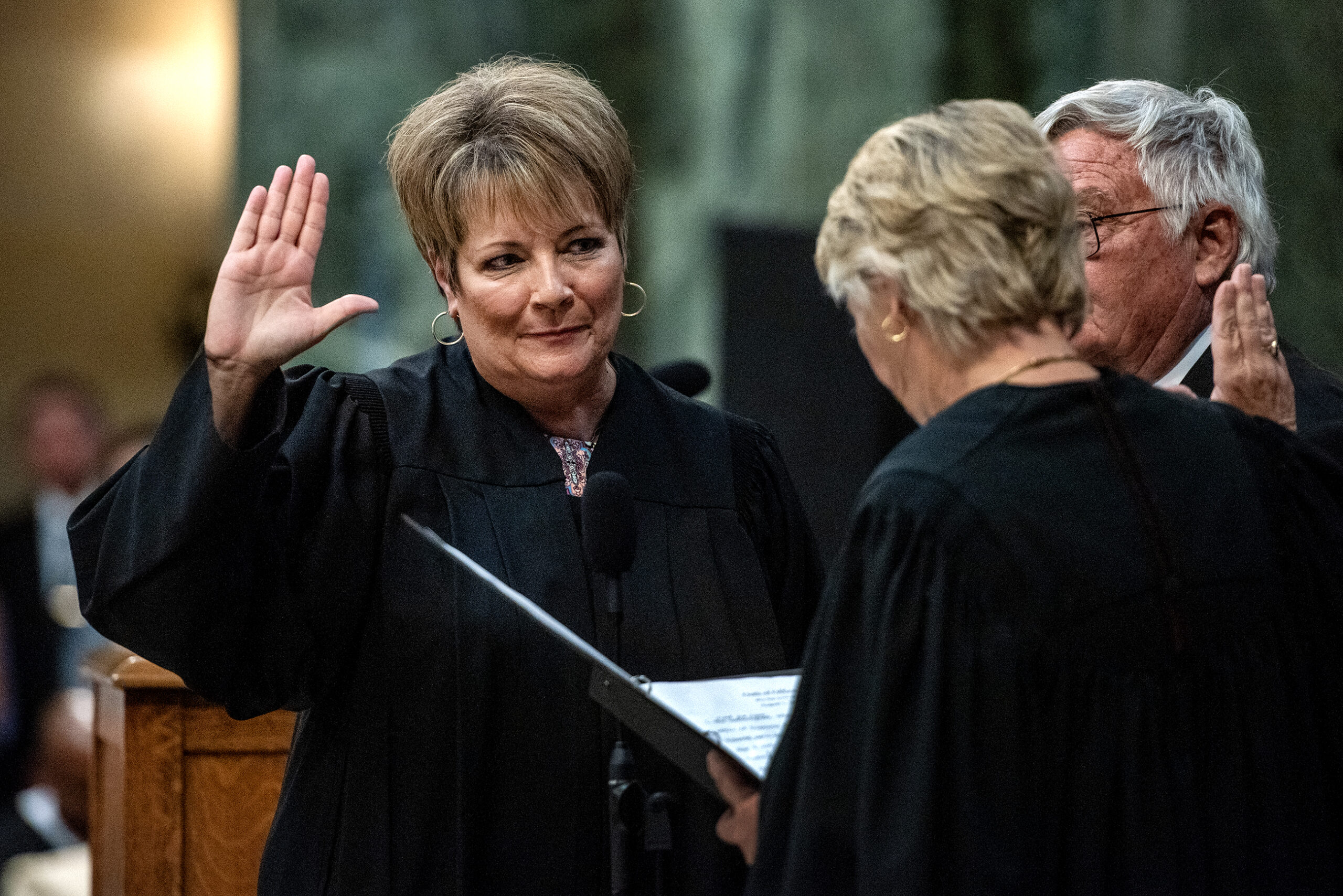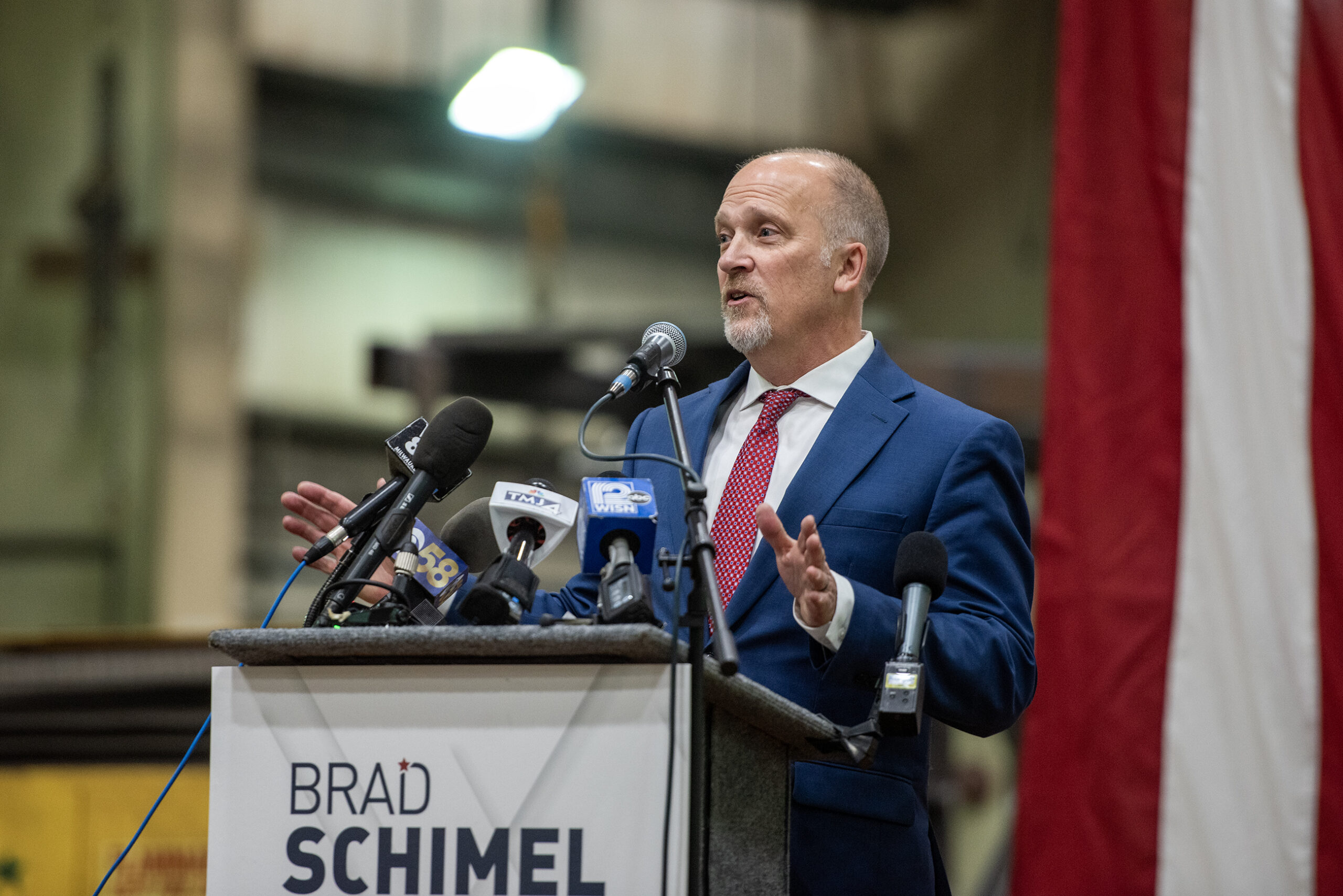The two candidates in the race for Wisconsin Supreme Court aren’t only seeking votes for themselves. They’re also campaigning on opposite sides of a constitutional amendment that will be on the April 7 ballot.
The amendment would change the current seniority-based system that determines who will be the chief justice to one where the seven justices would vote every two years to select the chief.
In a debate in Madison Tuesday, incumbent Justice Anne Walsh Bradley urged a no vote on the amendment, saying it’s only purpose is to unseat the current chief Justice Shirley Abrahamson who leads the liberal minority on the court.
Stay informed on the latest news
Sign up for WPR’s email newsletter.
“I don’t think the constitution should be used as a tool for political payback,” Bradley said.
Bradley’s opponent, Rock County Judge James Daely said allowing the justices to elect their own leader will force the court to live by democratic principles.
“It’s like electing a president a senator, an assemblyman or a mayor,” Daley said. “Its to be accountable to the voters.”
The candidates also sniped at each other for other instances of alleged partisanship in the judicial race.
Bradley took Daley to task for seeking support from the state Republican party in his bid to unseat her. But Daley said he’s sought support from Democrats as well.
“But I speak with people who have a similar philosophy as I have. A conservative philosophy, and what they’re telling tell me is that they don’t like is that Justice Bradley has brought her personal liberal politics and her special interests into the court,” Daley said.
Bradley said her support for keeping partisan and special interest campaign funds out of judicial races is essential to maintaining public trust in the court.
“Special interest groups that have unknown agendas, unlimited amounts of money and unknown donors undermines that public trust,” Bradley said.
The two will also debate in a statewide live TV and radio format on March 27 at 7p.m. on Wisconsin Public Television. Wisconsin Public Radio will simulcast the debate.
Wisconsin Public Radio, © Copyright 2024, Board of Regents of the University of Wisconsin System and Wisconsin Educational Communications Board.





